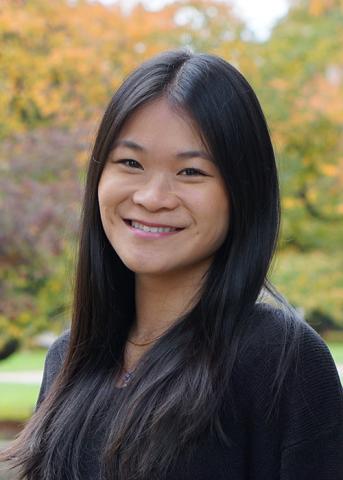What influenced you to pursue a graduate degree in nutritional sciences?
From my undergraduate education in human physiology and public health and my research focus in nutrition, I understood how crucial proper nutrition is to health, but also how difficult proper nutrition is to achieve due to numerous systemic barriers. I was confident that a graduate degree in public health nutrition would be a critical learning opportunity for developing policies and programs that address structural inequities that limit access to nutritious food among our most vulnerable populations.
Why did you choose UW?
I was drawn to UW due to the opportunities to connect with leading public health entities, including Public Health – Seattle & King County and the Institute for Health Metrics and Evaluation. Seattle is also well-known for their strong investment in social programs, including food and nutrition assistance programs. Lastly, I noticed the support that the Nutritional Science Program at UW provides for students is unparalleled, through research and teaching opportunities, mentorships, and a faculty and administrative team committed to helping students grow.
How do you see the importance of nutrition in public health and disease prevention?
Nutrition must be a priority in public health and disease prevention because everyone deserves adequate access to affordable, nutritious, and culturally relevant food. Governments, healthcare systems, and the public and private sectors must work together to implement nutrition interventions that strive for health equity and reduce the burden of diet-related diseases, especially among our most vulnerable populations.
Tell us about your practicum.
For my practicum experience, I worked with Public Health – Seattle & King County on a park observation project. Due to the current lack of data regarding current public park use in King County, it is difficult to develop public health strategies that encourage physical activity among residents. Local government agencies and community-based organizations wanted to understand how to prioritize their resources to promote equitable access to safe places for physical activity, specifically among communities of color. Thus, I collected and analyzed park utilization data, as well as developed an interactive data dashboard for visualization to generate recommendations for these stakeholders.
What are your future goals?
I aspire to streamline the complex field of nutrition and promote access to healthy eating. My goal is to collaborate with individuals who share my enthusiasm for devising creative and innovative approaches to nutrition communication. I also seek to build on my experience in managing and expanding nutrition initiatives within government agencies and the private sector, promoting equity and prioritizing economic and environmental sustainability.
What do you like to do for fun?
I love playing board/card games and doing jigsaw puzzles with friends and family. I also love watching crime TV and movies, as well as historical/period dramas. I enjoy cooking, trying different cuisines, going on scenic hikes, and taking long walks in the park. Lastly, I love having lazy days in with my beagle named Sabrina.
Tell us a fun fact about yourself.
When I was 7 years old, I lived in Beijing, China by myself to train gymnastics in an international sports school.
What do you enjoy most about living in Seattle?
I love that every neighborhood has a slightly different feel, and I enjoy walking through different parts of Seattle to learn more about its culture. As someone born and raised in the bustling energy of New York, I have also learned to appreciate a slower pace of life in Seattle. Lastly, I am in awe of the views and greenery this city has to offer every day.
What advice would you give someone considering graduate student with the UW Nutritional Sciences Program?
Keep an open mind when exploring various interests within nutritional sciences, even if you’re set in stone with your career goals coming into the program. There are so many different directions you can go within public health nutrition, and the best thing about this program for me was the opportunity to dive into so many of them to help myself narrow in on my true passion.

